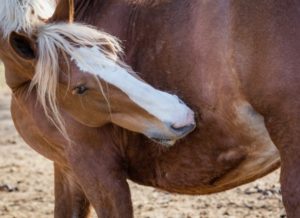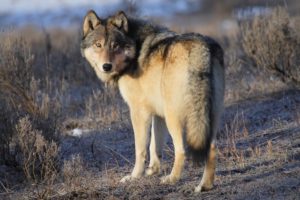A good portion of Zoobiquity cover a myriad of conditions due to emotional strain or mental health- anywhere from self-harm to heart problems from stress to eating disorders to fainting… and boy is there some good stuff in there.
First, as someone who is prone to fainting, I very much appreciated the second chapter. Essentially, although fainting is usually indicative of a weak stomach or cowardice in pop culture, it’s most likely that fainting occurs as a successful protection mechanism. For example, since sharks can detect a heartbeat, having a slower heart rate could protect a fish. Also, ducks are known to pass out when being hunted by a fox or wolf. Dr. NH proposes that humans understand fainting less than they should because we think of ourselves as the predator, not the prey because, well, we’re egotistical. But in reality, fainting is basically evolution helping you be really good at hide-and-seek (think of those goats that always pass out).

The next related topic basically says that you can die of a broken (or freaked out) heart. As we all can attest, our heart-rate can greatly speed or slow depending on if you’re scared or sad… but it turns out it can be a lot worse. Being stressed more regularly or after a particularly traumatic event can cause sudden cardiac death- or capture myopathy- in humans and animals. For humans, it could be 9/11 or a stressful home situation. For animals, it could be predators or being relocated by people. The main take away is: next time someone harasses you for needing some R&R, tell them to politely back the hell off.
On a really somber note, it turns out animals self-harm too. Dr. NH and Bowers connect the behavior to taking healthy grooming practices a little too far. Although grooming itself is good for social and non-social animals (and yes, I’m including humans in “animals”), the opiates and happy chemicals released in our brains can fool us into picking at our bodies a little too much- turns out me trying to pop my pimples has the same root cause as my dog licking the cut his foot too much. Though this is one of the ideas backed up a little bit less by strict science, Dr. NH proposes this view as a way to help treat both human and non-human animals.

If anyone was feeling self conscious about *performance* in the bedroom, turns out it’s actually a common thing (as weird as that may sound). As successful as evolution has been creating a sex positive world for us all to be a part of, anxiety and stress can negatively impact mating abilities for multiple animals. Some lemurs can’t get it up because they’re too nervous, and female bustard birds are less likely to even have successful eggs if they aren’t “primed” with an image of a striking male bird. Not to mention, many sexual human and animal behaviors are similar to acts individuals find repulsive- but our man Dr. NH reminds us all that the line is thin. So, all that said, know your anxieties aren’t going to be the end of you, always make sure your partner is turned on, and don’t let anyone kink shame you.
Lastly in this giant chunk of emotional trauma has to do with eating disorders and (surprise, surprise) the connection they have to the animal kingdom. It turns out that animals will control what and when they eat based on their current fears, such as elk who are always on the look out for hungry wolves. In animals, there seems to be a linkage of anxiety, anorexia, and low body mass between multiple species. Dr. NH points out in this chapter that maybe it’s time to use this data to help our own victims of eating disorders.
All-in-all, these portions of the book thoroughly cover an area of science and health that is still widely overlooked and not understood. And honestly, there are some pretty baller paragraphs to set the scene for the reader in the wilderness.
